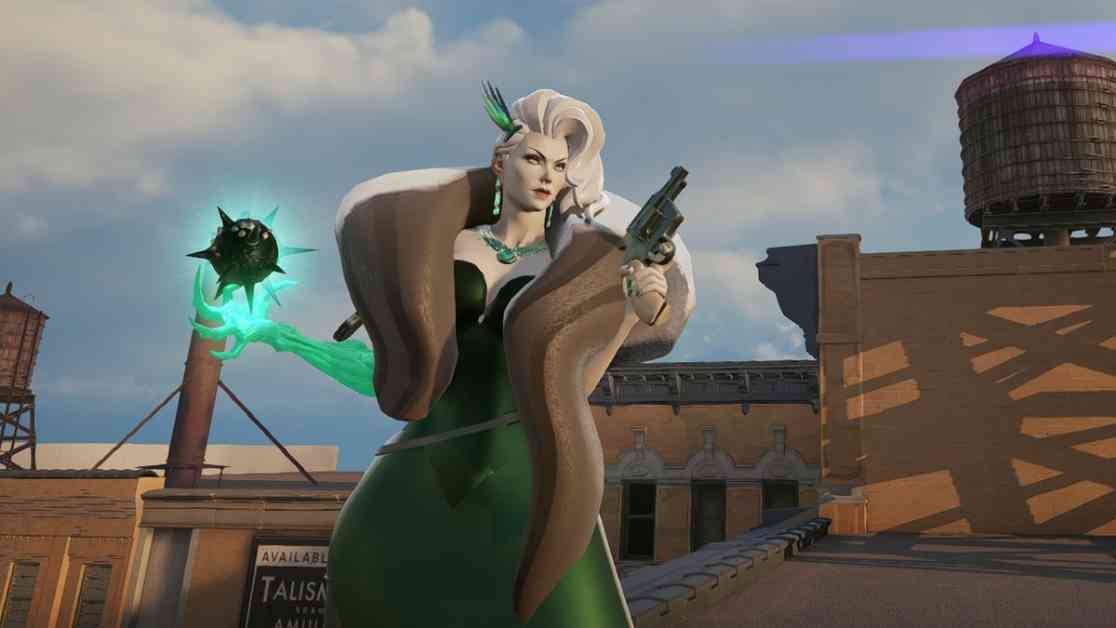Valve’s upcoming competitive game, Deadlock, has been generating buzz among gamers as it enters its closed alpha phase. With tens of thousands of players testing the game and even more tuning in to watch streamers on Twitch, there’s a growing interest in understanding what sets Deadlock apart from other titles in the market.
Exploring Deadlock’s Unique Gameplay
While many have drawn comparisons between Deadlock and popular games like Dota 2, Smite, and Predecessor, it’s important to note that Deadlock offers a gameplay experience that goes beyond traditional shooting mechanics. Despite featuring guns as the primary weapons for heroes, Deadlock isn’t your typical shooter. In fact, it can be considered an anti-shooter in some aspects.
Unlike traditional shooters where aim skill is paramount, Deadlock shifts the focus away from gunplay. Players may find that the guns in Deadlock deal relatively low damage, making them less effective in direct combat. This intentional design choice by Valve encourages players to rely more on their hero’s abilities and ultimates during battles. This strategic shift mirrors the gameplay dynamics of MOBAs like Dota 2, where abilities play a crucial role in determining the outcome of fights.
Abilities and Ultimates Take Center Stage
In Deadlock, abilities and ultimates become the stars of the show, overshadowing the role of guns in combat. Players unlock abilities as they level up and can further enhance them by purchasing items from spawn point shops. This progression system mirrors the mechanics seen in games like Dota 2, where players strategically build their hero’s skill set over the course of a match.
Engaging in teamfights in Deadlock involves careful timing and coordination of abilities to outmaneuver opponents. Rather than relying solely on precise aim, players must strategically deploy their abilities to gain the upper hand in battles. While some abilities require aiming, the emphasis is more on strategic use rather than raw mechanical skill.
Challenging Traditional Genre Definitions
Describing Deadlock solely as a shooter would be misleading, as the game’s core mechanics align more closely with MOBAs than traditional shooters. The emphasis on abilities, itemization, and strategic team play sets Deadlock apart from conventional shooter games. By blending elements of shooters and MOBAs, Deadlock offers a unique gameplay experience that appeals to a diverse audience.
Valve’s Approach to Innovation
Valve’s decision to deviate from the standard shooter formula with Deadlock showcases their commitment to innovation in game design. By reimagining the role of guns in gameplay and prioritizing abilities over aim skill, Valve has created a game that challenges players to think strategically rather than relying on reflexes alone.
The Future of Deadlock
As Deadlock continues to evolve during its development phase, it will be interesting to see how players respond to its unique gameplay mechanics. While some may initially struggle to adapt to the shift away from traditional shooting mechanics, others may find the strategic depth of Deadlock to be a refreshing change of pace.
In Conclusion
Deadlock’s innovative approach to gameplay sets it apart from other competitive titles on the market. By blending elements of shooters and MOBAs, Valve has created a game that challenges players to think strategically and work together as a team. As Deadlock progresses through its development cycle, it will be fascinating to see how players embrace its unique gameplay mechanics and strategic depth.




















